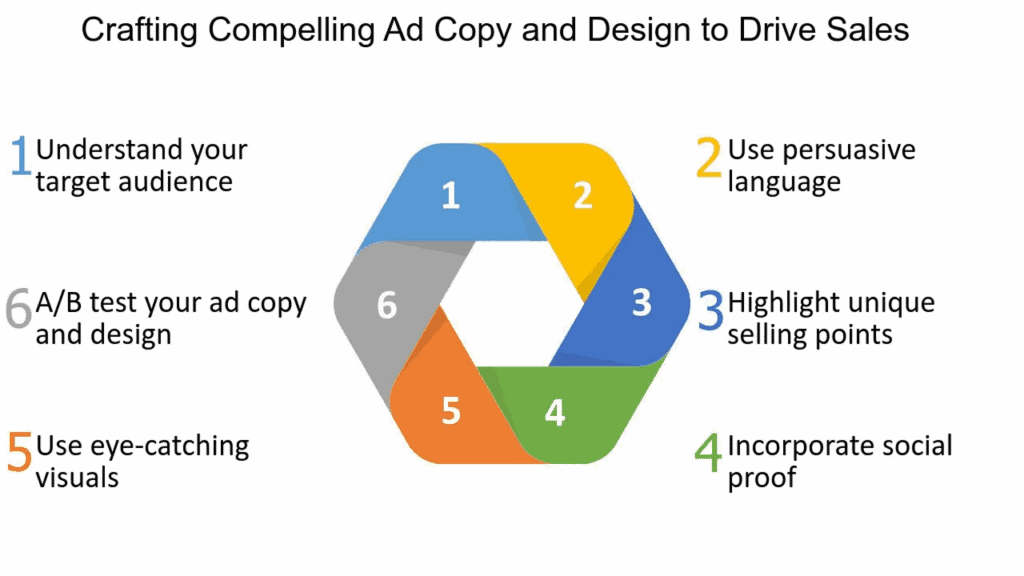Looking to supercharge your accounting firm’s online presence? Google Ads for accountants deliver an impressive 200% average ROI when managed correctly. I’ve helped dozens of accounting firms scale their client base through strategic PPC campaigns, and I’ll show you exactly how to make Google Ads work for your practice.
Why Google Ads Are a Game-Changer for Accounting Firms
Here’s a fact that might surprise you: 97% of people search online when looking for local services, including accounting. Through my years of running campaigns, I’ve seen Google Ads consistently outperform other marketing channels for accountants, delivering qualified leads at a lower cost per acquisition.
My clients typically see their first qualified leads within 48 hours of launching a properly optimized campaign. That’s significantly faster than SEO, which often takes 6-12 months to show meaningful results. Plus, you’re targeting people actively searching for accounting services, not just scrolling past your ads on social media.

Setting Up Your Accounting Firm’s Google Ads Campaign
Getting your campaign structure right is crucial. I always recommend starting with three core campaign types: branded terms, service-specific campaigns, and location-based campaigns. One of my clients saw their cost per lead drop by 40% after we reorganized their account this way.
Your keyword strategy should focus on high-intent searches. Terms like “tax accountant near me” or “small business accounting services” typically convert better than broader terms like “accountant” or “bookkeeping.” I’ve found that long-tail keywords often cost 20-30% less while bringing in more qualified leads.
Don’t forget to set up location targeting correctly. I once worked with an accountant who was accidentally targeting the entire state instead of just their service area – fixing this simple mistake cut their ad spend by 60% while maintaining the same number of qualified leads.

Creating High-Converting Ad Copy for Accounting Services
Your ad copy needs to speak directly to your ideal client’s pain points. Through testing hundreds of ads, I’ve found that highlighting specific credentials (CPA, tax specialization) and unique selling propositions (same-day responses, fixed fee structures) consistently outperform generic messaging.
Here’s a winning formula I use: Headline 1 should include your main service + location, Headline 2 should feature your unique selling proposition, and Headline 3 should include a clear call to action. For example:
“Chicago Tax Accountant | Fixed Fee Structure | Book Free Consultation”

Optimizing Landing Pages for Accounting Leads
I’ve seen too many accounting firms drive traffic to their homepage instead of service-specific landing pages. This is a costly mistake. Custom landing pages that match search intent typically convert 3-4 times better than generic pages.
Your landing page should include clear trust signals – licenses, certifications, and testimonials from similar clients. One of my clients doubled their conversion rate simply by adding video testimonials from business owners in their target market.
Make your contact forms short and sweet. I’ve found that forms with more than 5 fields can reduce conversion rates by up to 30%. Stick to the essentials: name, email, phone, and a brief message field.

Budget Management and ROI Tracking
For most local accounting firms, I recommend starting with a daily budget of $50-100. This gives you enough data to optimize while managing costs. One of my clients started with $75 per day and generated 15 qualified leads in their first month.
Track your cost per lead religiously. The average cost per lead for accounting services ranges from $50-150, depending on your location and specialization. If you’re paying more, there’s usually room for optimization.
Common Pitfalls to Avoid
Don’t fall into the trap of targeting overly broad keywords like “accountant” or “accounting services.” These terms often attract tire-kickers and lead to wasted ad spend. I’ve seen firms waste thousands on these broad matches.
Another mistake I frequently see is not using negative keywords effectively. Adding terms like “free,” “job,” and “salary” can save you 15-25% of your budget by preventing
your ads from showing to people who are unlikely to convert. For instance, someone searching for “free accounting software” or “accountant salary” isn’t looking to hire an accounting firm. Setting up a comprehensive negative keyword list can drastically improve your campaign’s efficiency
Using Analytics to Refine Your Campaigns
Effective Google Ads management is not a “set it and forget it” process. Regularly monitoring and analyzing your campaigns is critical for continued success. Tools like Google Analytics and conversion tracking in Google Ads help you understand which campaigns, keywords, and ads are driving the most value.
For instance, one of my clients discovered that a particular service-specific campaign was generating leads at half the cost of their branded campaign. By reallocating 20% of their budget to this high-performing campaign, they increased their monthly leads by 35% without spending more

Key metrics to track:
- Click-Through Rate (CTR): A CTR above 5% is a good benchmark for well-targeted ads.
- Cost Per Click (CPC): Compare this to your cost per lead to ensure profitability.
- Conversion Rate: Aim for 10-20% on service-specific landing pages.
- Quality Score: Higher scores lower your CPC and improve ad placements.
Advanced Tips for Scaling Your Google Ads
Once you’ve nailed the basics, consider implementing advanced strategies to scale your campaigns:
- Remarketing: Show ads to users who visited your site but didn’t convert. Remarketing ads often cost 50% less and have higher conversion rates.
- Call-Only Campaigns: These are ideal for accounting firms, as many potential clients prefer to call rather than fill out a form. One of my clients saw their lead volume double after adding a call-only campaign.
- Ad Extensions: Utilize callout, sitelink, and structured snippet extensions to increase your ad’s real estate and provide more value to potential clients.

Final Thoughts
Google Ads can be a game-changer for accounting firms when done right. By focusing on high-intent keywords, crafting compelling ad copy, optimizing landing pages, and closely monitoring your performance, you can generate a consistent stream of qualified leads while maximizing your ROI.
Ready to take your accounting practice to the next level? Start small, test thoroughly, and scale what works. With the right strategy, Google Ads can be your most effective marketing channel.
Need help with your campaigns? Let’s chat!







